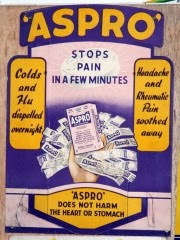
David Evans & Co. was a textile printing business established in Crayford, south-east London in 1843. David Evans was already an established silk merchant and Crayford was seen as an ideal site for textile work as it was within easy reach of the main markets of central London and the Thames ports of north Kent, and there was abundant clean water from the River Cray.
The company specialized in hand block printing right up to the 1980s. This was an incredibly slow, labor-intensive process that combined the skills of an artist, toolmaker and carpenter. The process started with a block maker who transferred a design to a block of wood. A separate block was needed for each distinct color and many blocks were needed to build up the pattern. The blockcutter would then carve out the design which would be transferred to a metal plate. Once the plates were made, a printer applied ink to the relief and hand pressed it against a cloth. David Evans & Co. had a massive library of such plates – something like 70,000 different blocks with about 11,000 different designs. The company produced good quality printed silks, and gained an international reputation for its Real Ancient Madder Silks, which were made by a special process involving secret recipes, initially including the use of dung, and herds of cattle were kept for the purpose.
David Evans & Co. advanced into screen and automated printing in the 1970s. Quality was always paramount and clients included, among others, Liberty department store, Christian Dior and Elton John. The company closed down in 2002.
Examples of printed silks by David Evans & Co.
by Mark Matlach
 Cooke, Sons & Co. was a carpet manufacturer established by William Peabody Cooke in Liversedge, Yorkshire in 1795. The company had spinning mills in Liversedge, a matting factory in Hadleigh, Suffolk, and a warehouse in London. Carpets were entirely produced on handlooms until 1850.
Cooke, Sons & Co. was a carpet manufacturer established by William Peabody Cooke in Liversedge, Yorkshire in 1795. The company had spinning mills in Liversedge, a matting factory in Hadleigh, Suffolk, and a warehouse in London. Carpets were entirely produced on handlooms until 1850.












